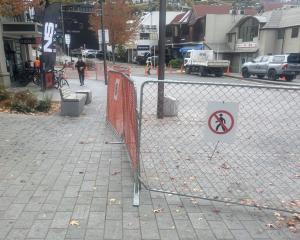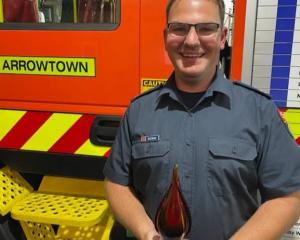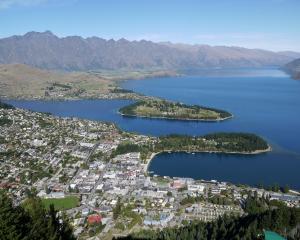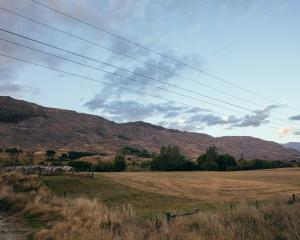The 7-year-old is one of thousands in New Zealand who live with anaphylaxis, a life-threatening allergic reaction, requiring him to carry two anapens with him at all times, along with antihistamine - and educate everyone around him.
This week awareness is being raised about Louis and children like him by Allergy New Zealand during Food Allergy Awareness Week.
One in 10 children under the age of 5 is affected.
Louis' mother, Charmaine Denney, said it was ''hard for a 7-year-old to process'' the allergy and the consequences of exposure to his triggers, first identified when he was just 6 weeks old.
''He had a blister on the back of his leg.
''By the time he was 8 weeks old, his whole body was covered in eczema. He was reacting to egg being cooked in the house.''
Mrs Denney and her husband, Richard, immediately took Louis to an allergist for a patch test, which ''wasn't a great experience'' for him, and a blood test - known as a rast test - to determine the extent of his allergies.
It found eggs and kiwifruit would bring on anaphylaxis and he had other allergies, including to nuts, dust mites and bananas.
In the following two years, Louis required urgent treatment on three occasions, the first when he was 8 months old.
Despite the family being egg-free, traces of egg on a toy he was playing with caused his face to swell before he vomited and then fainted.
The second attack was after he had been playing at a park, holding on to the handlebars of a train.
''After that, he had an attack.
''He went floppy and limp.
''It kind of stays with you.
''There's a good side to that in that it makes you so vigilant, especially when he was so young.''
Louis must have his anapens - which are not funded - renewed every year, as well as visit their Auckland-based allergist for testing.
He and his family also work hard to educate those around him, particularly because if he was to suffer an attack, he would not be able to administer his life-saving medication himself.
Louis had spoken to his class at Arrowtown Primary School at the beginning of the year and Mrs Denney had spoken to his teachers.
His older brother Ollie, who has no acute allergies, has also made his friends aware of his brother's condition.
As an additional means of protection, the school was now free of egg cartons and birds' nests.
The family also remained constantly on the look-out for triggers - a broken egg-shell in a park, a bird's nest, or someone close by eating a muffin were all problematic.
At the supermarket, when Louis was little, a protective cloth was put over the bar of the trolley where his hands rested to protect him from trace triggers and now they avoided the egg aisle.
An egg substitute, called ''No Egg'' was available, but finding it next to the eggs on the shelf meant until it was moved and uncontaminated she was not able to purchase it.
The Denneys never eat in restaurants or cafes as a family, because just the smell of an egg cooking is enough to trigger the reaction.
They also had to read the labels on everything, given ingredients changed frequently and things that were once ''safe'' were so no longer.
Once he turned 18 they would to educate Louis about what alcohol was safe to consume, given many wines and beers were refined using egg white.
Despite the dangers associated with exposure, they worked hard to ensure he did not miss out on having fun with his friends, packing him a special lunch for birthday parties.
However, having moved to the resort from Auckland, the Denneys said they felt isolated in terms of support.
''When we lived in Auckland it was easier. Medical help was close, the allergist was there and Allergy New Zealand was up there.
''Here ... we've sort of had to educate the teachers ... so that they knew or so that they looked after him.
''There's not really much support in a rural area.''
The Denneys would like to establish a support group, in conjunction with Allergy New Zealand, for families of children with life-threatening allergies.












